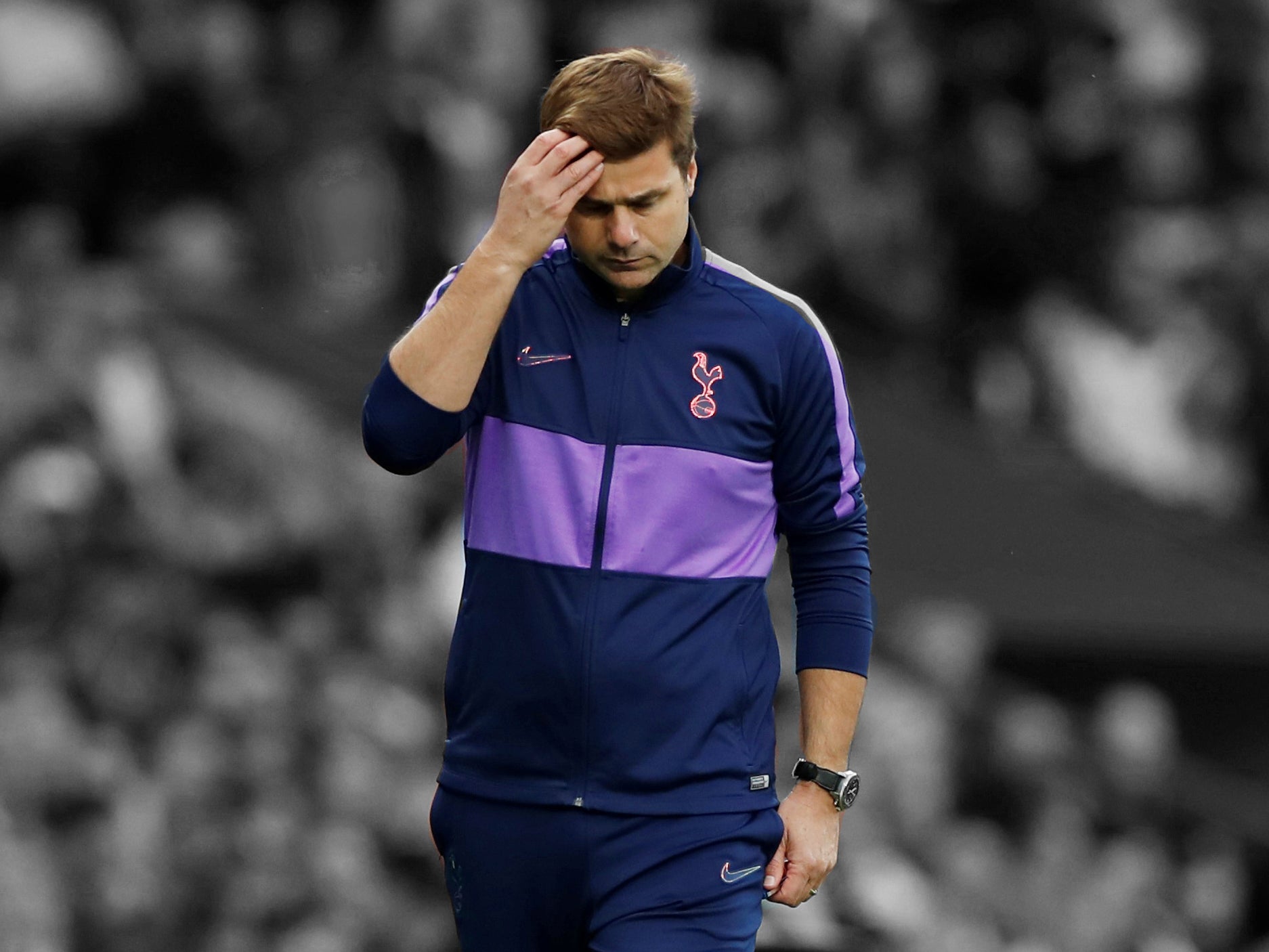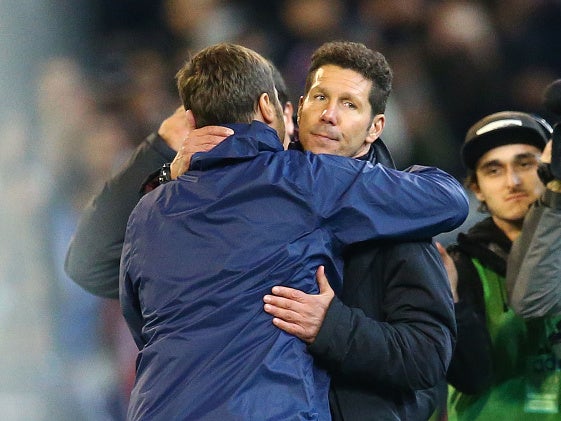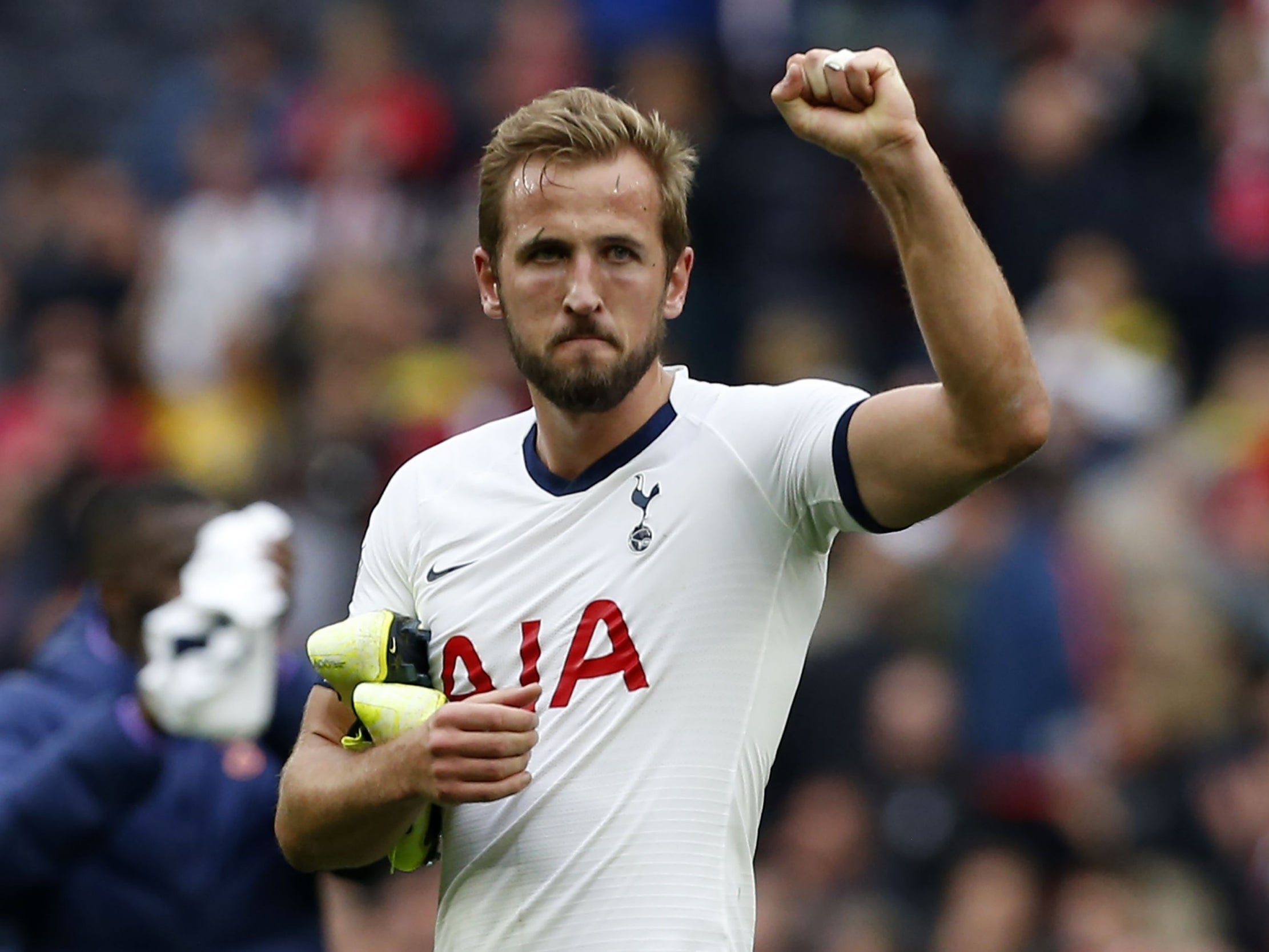Tottenham: How Mauricio Pochettino can take inspiration from Diego Simeone to revitalise Spurs
Under the Argentine, Spurs have navigated a tricky stadium move and reached a Champions League final – to depart now would be a tame and unfitting conclusion
There is a feeling, at Tottenham, that things have gone a little stale. Away from the glitz of the club’s impressive new stadium, and aside from their astonishing run to the Champions League final last season, Spurs have, unquestionably, regressed over the past few months.
Results have often been poor, performances inconsistent and Mauricio Pochettino, once such an assured presence, has begun to show signs of agitation and restlessness.
Inevitably, then, all the talk is of his imminent exit: Spurs need a change, say the critics; Pochettino has done all he can, taken the club as far as it can realistically go, and his future should be elsewhere.
Perhaps, though, there is another way. Perhaps one of modern football’s most intelligent, innovative and thoughtful coaches will push through this difficult spell, find solutions to the problems he faces and bring Tottenham back onto an upward trajectory.
For inspiration, Pochettino might look towards a compatriot, a man he played alongside for Argentina at the 2002 World Cup – coached, incidentally, by Marcelo Bielsa, a great influence for both. That man is Diego Simeone, who is now into his ninth year as Atletico Madrid manager.
The two are very different characters: Pochettino composed, reserved, and cerebral; Simeone aggressive, tenacious, almost hyperactive on the touchline. They motivate their players in different ways and might, on the surface, appear nothing alike.
But there are also many similarities. Both have instilled similar styles at their respective clubs, based on high, intense pressing and quick transitions – though Simeone’s version is more cautious. They are from the same tactical school of thought and share many of the same beliefs. And both, most pertinently, have transformed their clubs, taking them over several years from mediocrity to the top of the European game.
Back in 2017, Atletico were in the midst of a difficult transitional period, navigating a move to a new stadium and a two-window transfer ban. They had won La Liga, and twice reached the final of the Champions League, but there was an overwhelming feeling that Simeone could do no more. A year earlier, the Argentine had made the decision to reduce his contract by two years.

Speculation that he would leave for Inter followed and that has never really gone away. In fact, Simeone has been linked with the managerial job at San Siro so persistently that he even felt the need to address it in December last year. “It will definitely happen,” he said. But not yet.
Simeone has been wedded to Atletico from the start, committed to the project, determined to see it through to its natural conclusion, even if that meant enduring the frustration of transitional periods. They have been through another this summer, refreshing an ageing squad with new signings like Joao Felix and attempting to reinvigorate the Simeone era. Whether it will be successful remains to be seen, but the early signs are promising.
The salient point amongst all this is that Pochettino, despite Tottenham’s sluggish start to the campaign, need not abandon six years of patient, carefully constructed work. He has taken Spurs from obscurity to the pinnacle of club football. All that has been lacking – as has been repeatedly pointed out – is a long-awaited trophy. If there appears to be any stagnation this year, it is only because the bar has been set so high.

“If he [Pochettino] turned around tomorrow and said I've had enough of this, I'm pretty sure Real Madrid and Manchester United would be on the phone,” former Spurs midfielder Jermaine Jenas told BBC Radio 5 Live following Saturday’s 2-1 win over Southampton. “He'd probably double his wages and get a massive transfer kitty.
“There's a reason why he wants to stay at Tottenham. He genuinely loves this project but he's not been backed, I don't think, in the way he thought he was going to be backed at the start of the season.”
Like Simeone, Pochettino is enamoured with his club. There is an attachment there: this Spurs team is his, formed in his image and created with the intention of taking the club to the next level. At Atletico, though, Simeone has been given the funds to make the necessary changes. Daniel Levy may need to provide Pochettino with more in order to keep things fresh.
But Spurs can certainly learn from Atletico. The two clubs have been on a similar path, but Tottenham appear to be in danger of ending this period of growth and gradual improvement prematurely. Now is not the time to panic; by now Pochettino should be trusted to guide the club back on course.
This is, without doubt, a testing period, but there have been many since Pochettino took charge in 2014. It would not be a fitting conclusion to a defining era in Spurs’ history if he were to depart now in such a tame manner.

As with Simeone at Atletico, there is an inseparability about Tottenham and Pochettino. And there is no need to follow the trend of reactive, rash decision making in the wider football world.
Longevity was once heralded as the ideal, but now it almost seems unfashionable. There is an assumption that every year, every season, will be an improvement on the last, that there will be no setbacks along the way. But that, as Pochettino and Simeone have experienced, is not always the case. Generally, both have learned valuable lessons from difficult periods and later used them to their advantage.
“We've known each other for a long time and have competed as coaches in Spain,” Simeone said of Pochettino in 2016. “His mind is fabulous. He has developed a philosophy of the game onto his team - hopefully that can continue to improve.”
Since then, Tottenham have navigated a tricky stadium move, reached a Champions League final and finished in the top four of the Premier League each season without fail, all while spending relatively little on new players. Given the opportunity of a slight rebuild – like that of Atletico’s this summer – there is no reason Spurs cannot continue to be a force domestically and in Europe.
And there is no reason they cannot do so with Pochettino still at the helm.
Join our commenting forum
Join thought-provoking conversations, follow other Independent readers and see their replies
Comments
Bookmark popover
Removed from bookmarks